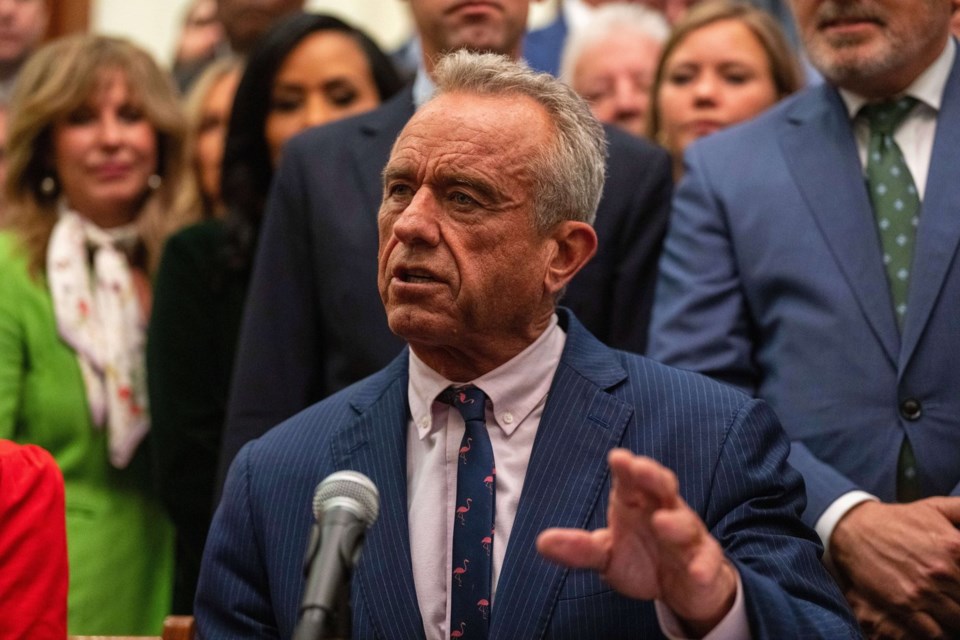Rural hospitals are preparing to lose billions of dollars from President Donald Trump’s signature tax and spending cut bill signed into law this summer.
Dozens, already on the brink, have warned they face the prospect of closure or reduced services because of the bill’s cuts to Medicaid, which is funded by federal and state governments and provides health care coverage for the poorest Americans.
At a cabinet meeting Tuesday celebrating working Americans, Health and Human Services Secretary Robert F. Kennedy Jr. asserted that a historic “ infusion of cash ” is on the way for rural hospitals throughout the country.
“Right now we spend 7% of Medicaid dollars on rural hospitals,” he said. “They're getting the short end of the stick.” To address that, he said a new fund — established in the legislation — will give rural hospitals an extra $10 billion every year.
Here's a look at the facts.
THE CLAIM: “Under the rural transformation program, we give them an extra $10 billion a year. We’re raising an infusion of cash, rural hospitals and rural communities, by 50%. It’s going to be the biggest infusion in history and it’s going to restore and revitalize these communities.”
THE FACTS: There's more to that nearly 900-page bill than Kennedy let on at the White House.
It's true that Republicans established a new fund that will set aside $10 billion every year for rural hospitals, providers and clinics. But they did that to offset significant cuts that rural hospitals are expected to endure as a result of the legislation, which also slashes $1.2 trillion from the federal budget over the next decade, primarily from Medicaid.
Roughly 10 million people are expected to lose health insurance from the legislation. Most people will lose Medicaid.
That will leave many hospitals with patients who can't afford to pay for emergency services. The changes are expected to hit rural areas, where as many as 1 in 4 Americans rely on Medicaid to pay for health insurance, particularly hard.
Estimates have suggested that rural hospitals, in particular, could lose between $58 billion and $137 billion over the next decade because of the bill's provisions. As many as 300 rural hospitals were at risk for closure because of the GOP's bill, according to an analysis by The Cecil G. Sheps Center for Health Services Research at the University of North Carolina at Chapel Hill.
The Rural Health Transformation Program established in the law is supposed to prevent those closures. It sets aside $10 billion annually from 2026 to 2030.
Hospitals and health industry experts have warned that while the fund throws a lifeline to rural hospitals, it won't save them all.
“This certainly wouldn’t offset that entirely,” Washington University health policy analyst Timothy McBride said of the fund.
Then there's the matter of how hospitals will actually access the funds. Half of the $50 billion will be divided equally among all states. The other half will be divided based on a formula, developed by the Centers for Medicare and Medicaid Services, that examines a state's rural population and the number of low-income people it serves.
Dividing some of the funds equally among states, however, will ultimately give some states, even those that have few rural hospitals, the same amount of money as those states that have a significant number of rural hospitals.
“They all have needs, but at least half of the funds are going to be distributed equally, which doesn’t make sense,” McBride said. “Some states don’t have very many, and others have a lot.”
A spokesperson for Kennedy did not respond to a request for comment.
___
Find AP Fact Checks here: https://apnews.com/APFactCheck.
Amanda Seitz, The Associated Press



